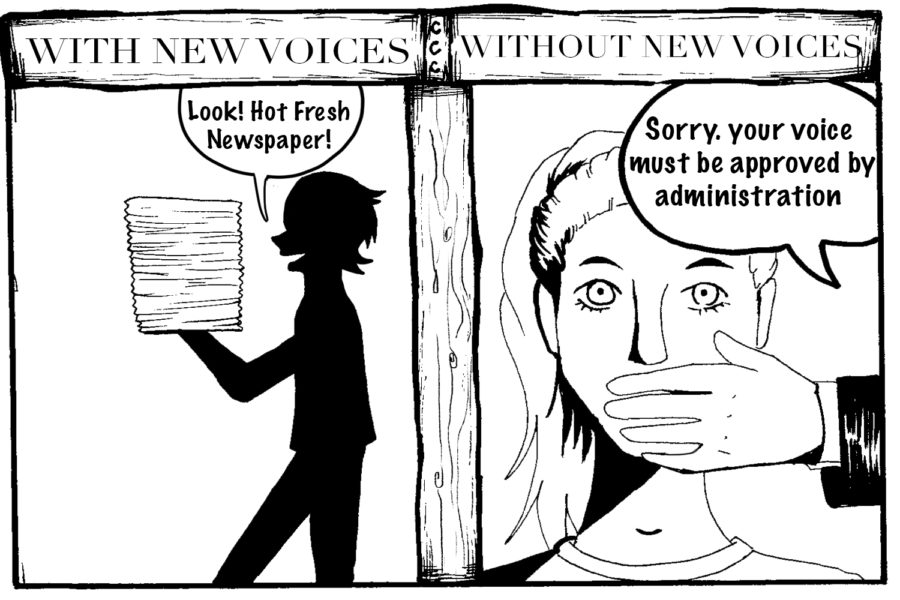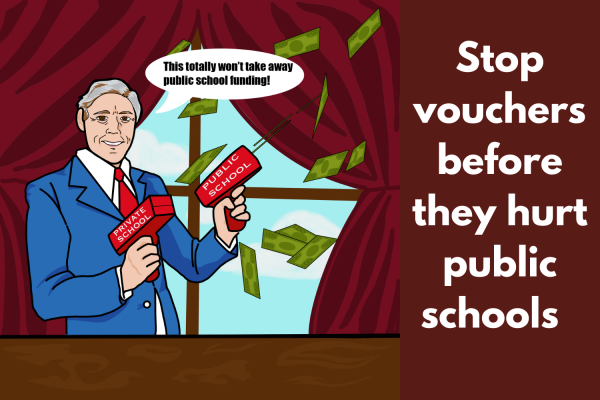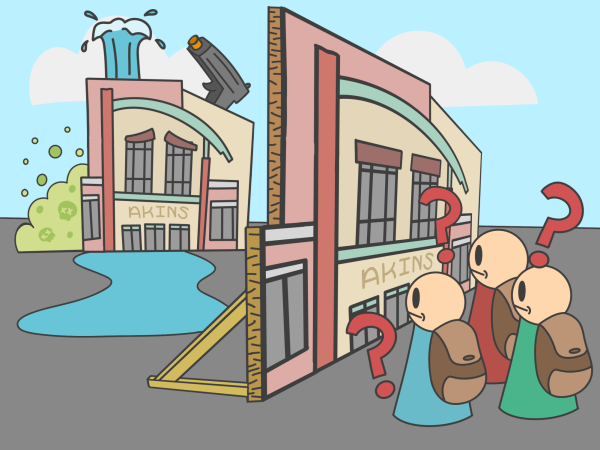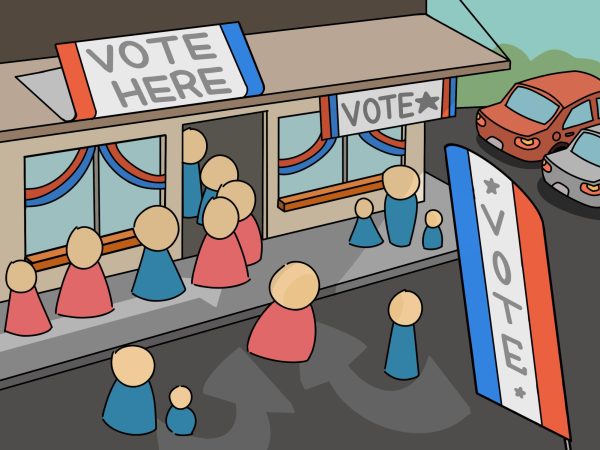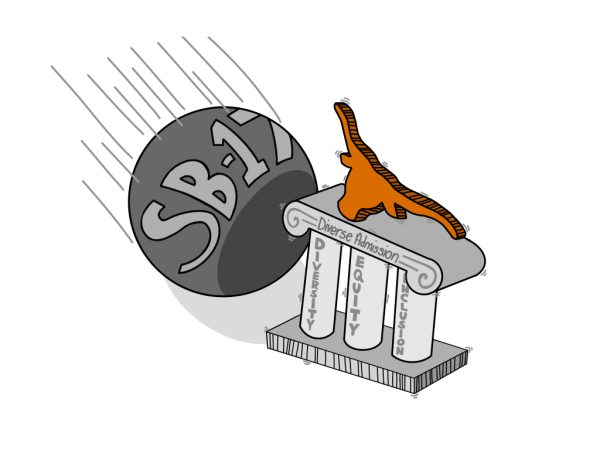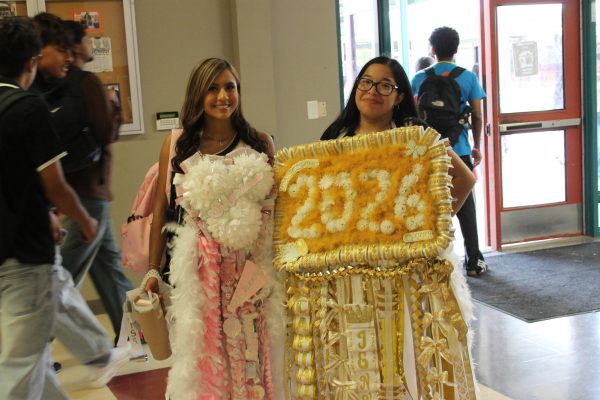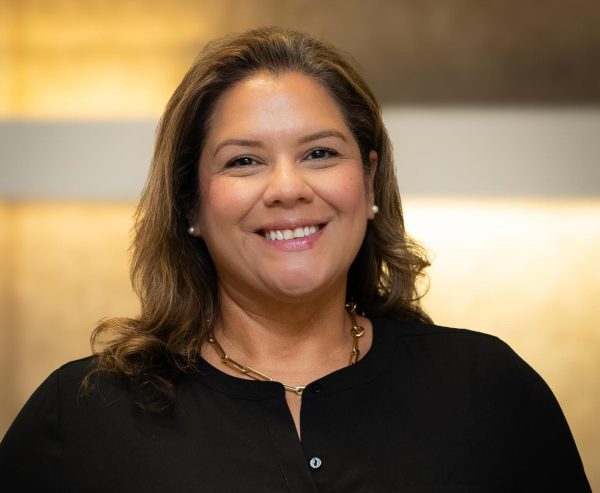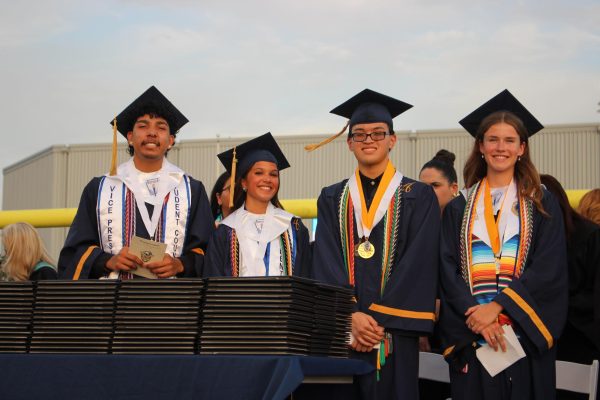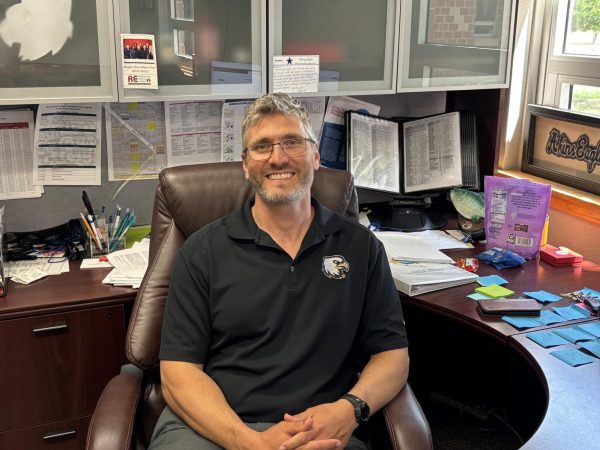Legislation needed to protect student press
The practice of prior review for student journalists is dangerous for a number of reasons, but the heart of all of the matter is the same: an administrator reviewing a paper has different interests in mind than a journalist or adviser.
Our newspaper on campus is immensely privileged.
We have been able to move more or less autonomously in our reporting and we have maintained a pleasant relationship with our school’s administrators while doing so. In writing and reporting on our stories, we are always able to find students and staff members willing to speak and engage with us, no matter the issue. At many schools across the state, however, administrators on campus attempt to suppress and regulate student news publications through prior review and censorship.
What is Prior Review?
Prior review is a practice in which a school’s administration or principal requires that a school’s publication submit its content for review before it is published. In many public college cases, this was deemed unconstitutional, but high schools and middle schools have no such legal history. Most of this is because of a 30-year-old Supreme Court ruling in Hazelwood v. Kuhlmeier. In this case, the Supreme Court ruled that some high school student news organizations aren’t intended as a public forum and student journalists do not have full rights under the First Amendment.
The practice of prior review for student journalists is dangerous for a number of reasons, but the heart of all of the matter is the same: an administrator reviewing a paper has different interests in mind than a journalist or adviser. For an individual running a school, the public image of the school is always going to be a top concern. Because of this, a principal may think that the primary goal of a campus’ newspaper should be to serve as “good PR” for the school and disapprove of stories about things that are negative or might make a school look bad. What is Censorship? Censorship through prior review occurs when the individual reviewing the content requires that a piece is cut or removed.
Stories are often censored for reasons such as negativity. The reasoning behind such censorship shows a critical misunderstanding of the fundamental purpose of journalism, scholastic or otherwise. Journalists provide a service to the public centered around the truth. This service does not take into account optics or morale. As a student publication, our primary concern is what information is most immediately pertinent to students, good, bad or ugly. Honest and quality reporting to a student body is especially essential now when social media allows for rumors and word-of-mouth about major school events to spread like wildfire. Censorship from an administration often keeps such quality journalism out of the hands of students who need it.
Self-Censoring
Perhaps the most dangerous side effect of prior review and censorship is that it teaches student reporters to stifle their own ideas. If a student at a school where the prior review is brainstorming ideas to report on, they might shoot down their own ideas before going to their staff or adviser if they think they are too controversial
or negative. Self-censorship teaches citizens to turn a blind eye to wrongs that they see. If a student journalist learns to strike down their desire to investigate and ask questions about the world around them, they will apply that practice to every aspect of their lives. The practice of self-censorship trains students to participate passively in the world around them, and prior review sets the stage for this habit.
Accountability and Professionalism
In addition to creating bad habits in student journalists, prior review reinforces harmful misconceptions about how student newsrooms —and newsrooms in general — operate. Requiring that scholastic news organizations submit their work for review before it is published implies a distrust in the students’ ability to report responsibly and hold themselves accountable. This shows a misunderstanding of the way that journalism works. Journalism and reporting are centered around internal accountability. It is an institution that learns from its own mistakes, filled with communities of colleagues that expect honest and thorough reporting from one another.
Assuming that student press organizations would behave any different is vastly underestimating these organizations. Student newspapers such as ours are shining examples of the responsible and quality work that can be done without the impediment of administrators. Many student organizations across the state are able to report well, and irresponsible scholastic journalism is incredibly uncommon because their readers and communities demand high-quality journalism.
New Voices
In order to protect students from prior review, we are in support of New Voices legislation, which is currently being proposed as a state law in Texas. This bill, which Sen. Jose Rodríguez has said he will file in the current session of the Texas Legislature, will be designed to prevent school administrations from instituted prior review or censorship on student news organizations of any kind. New Voices would also provide protection for journalism teachers who advise student publications.
All Texas student journalists deserve the ability to do their work independently like the staffers at The Eagle’s Eye. New Voices would ensure this right across Texas for students who do not have school administrators that respect the student press as much as ours do. We greatly encourage our state representatives to vote in favor of this bill in the upcoming legislative session.
SB 514 was filed by Rodríguez on Jan. 29. This bill is incredibly promising for student journalists. According to the Student Press Law Center, however, this legislation could be detrimental to scholastic publications if key revisions are not made. The bill does not clearly define student media or protected and unprotected speech as it is currently written, and some language included may encourage school administrations who did not previously to begin engaging in prior review. While we encourage support of New Voices and student press freedom from our legislators, we also encourage careful revision before passage of the bill.
Your donation will support the student journalists of Akins High School. Your contribution will allow us to purchase equipment and cover our annual website hosting costs.
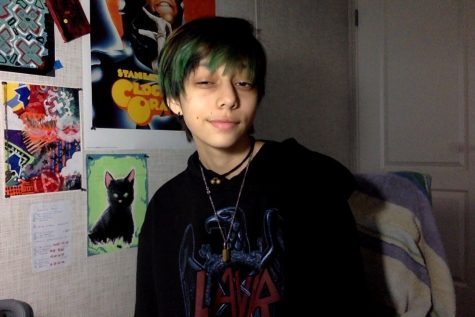
Grade: 12
Academy: New Tech
Number of Years on Staff: 3
Title: Graphics Editor
Why do you enjoy being on staff? I get to practice my drawing skills, and explore how to convey themes and ideas through art.
What do you do for fun? I create paintings, digital art, and play video games during my free time.
What new hobbies, activities do since quarantining because of COVID? I haven't developed any new hobbies, but I have been cooking new stuff a lot more at home and practicing cooking techniques, and bothering my beautiful cat a lot more.
Hopes & Dreams? To make a living through freelance art, doing tattoo work, and, in general, be able to do what I'm passionate about without losing the drive and be stable.
Instagram handle: @ireallyhateash
Other Socials: https://linktr.ee/ashkat


